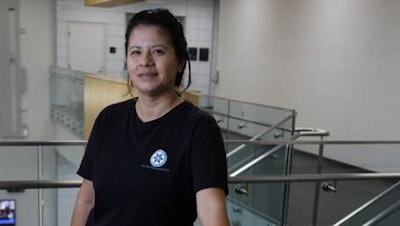The San Diego Community College District (SDCCD) has boosted the minimum wage for all its permanent employees to $30.58 per hour, which is nearly twice the state’s minimum wage.
 Edith Rangel is one of 250 permanent employees who will benefit from an increase in San Diego Community College District's minimum wage to $30.58. Previously, it was $22.13.San Diego Community College District
Edith Rangel is one of 250 permanent employees who will benefit from an increase in San Diego Community College District's minimum wage to $30.58. Previously, it was $22.13.San Diego Community College District
Officials said the raise ensures that all SDCCD employees are paid a living wage as defined by the Massachusetts Institute of Technology’s Living Wage Calculator. Minimum wages for temporary employees also increased to $22.31 per hour. This translates to a minimum of $63,606 annually for permanent full-time employees and a $46,404 annual minimum for temporary full-time employees.
“We recognize the dignity of every individual in our community and the value of their work,” said SDCCD’s Acting Chancellor Dr. Gregory Smith. “As the costs of housing and living in San Diego have increased significantly in recent years, this investment safeguards against our employees falling into housing insecurity and relying on public services.”
Two working adults raising two children in the San Diego metropolitan area need to make $30.58 per hour to support themselves and their family, according to the Massachusetts Institute of Technology. A single adult with no children must earn $22.31 to support themselves.
“This is a much-appreciated move,” said maintenance worker David Barragan, 32, a single father raising a teenage daughter who has been with the district for 10 years. “I was barely getting by, even working two jobs.”
Maintenance employee Edith Rangel said she feels the same way. She and her husband often found themselves struggling to pay their bills while raising two children, ages 5 and 9. “I’m excited and I’m grateful,” Rangel said. “This will help my family, and this will help me.”
The increase, agreed to in partnership with the district’s labor unions, will cost the SDCCD $1.5 million in the current fiscal year, but the amount decreases in subsequent years as the affected employees in coming years would have moved up on the previous pay scale through step increases anyway. Officials said the cost will be borne by deducting $1.5 million from new revenue coming from the state to community college districts through an annual cost of living allowance.













